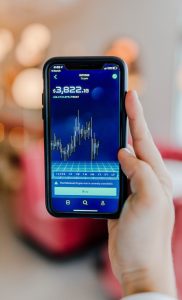Halal or Haram: Examining the Risks and Benefits of Forex Trading for Muslims
Forex trading has gained significant popularity in recent years, attracting a diverse range of investors from all walks of life. However, for Muslims, participating in forex trading raises ethical concerns due to its potential conflicts with Islamic principles. In this article, we will delve into the risks and benefits of forex trading for Muslims, shedding light on the halal (permissible) and haram (forbidden) aspects of this financial activity.
Forex trading, also known as foreign exchange trading, involves buying and selling different currencies in order to profit from fluctuations in their exchange rates. It is essentially a speculative market where traders aim to capitalize on the volatility of currency pairs. While forex trading can be highly lucrative, it also carries inherent risks that need to be carefully considered.
One of the primary concerns for Muslims is the concept of riba (interest), which is strictly forbidden in Islamic finance. Riba refers to the charging or receiving of interest, typically associated with loans, debts, or any form of excess wealth gained without any productive effort. In conventional forex trading, interest is involved through the practice of rollover or swap fees, which are applied when positions are held overnight.
To comply with Islamic principles, several forex brokers have introduced Sharia-compliant accounts that eliminate interest-based transactions. These accounts operate on an Islamic finance concept called mudarabah, where traders and brokers share the profits and losses generated from forex trades. This approach ensures that Muslims can engage in forex trading without violating their religious beliefs.
However, it is important to note that even with Sharia-compliant accounts, Muslims should exercise caution and thoroughly research the broker’s credibility and compliance with Islamic finance principles. Some brokers may claim to offer halal trading accounts, but their practices may still involve elements of riba. Therefore, it is crucial for Muslim traders to choose reputable and regulated brokers that have been certified by recognized Islamic finance authorities.
Another concern for Muslims is the element of uncertainty or gharar. Gharar refers to any transaction that involves excessive ambiguity, uncertainty, or speculation. In forex trading, the fluctuating nature of currency prices can be seen as an element of gharar. However, Islamic scholars have differing opinions on the permissibility of forex trading based on this principle.
Some scholars argue that forex trading is akin to a zero-sum game, where one party’s gain is another party’s loss, making it akin to gambling and therefore haram. On the other hand, other scholars contend that when forex trading is conducted with proper research and analysis, it can be considered a legitimate business activity that aligns with Islamic principles.
To mitigate the risks associated with gharar, Muslim traders are advised to adopt disciplined trading strategies that rely on thorough analysis, risk management techniques, and adherence to their own risk tolerance. By approaching forex trading as a business endeavor rather than a speculative gamble, Muslims can minimize the element of uncertainty and make informed trading decisions.
In addition to the risks, forex trading also offers several potential benefits for Muslim investors. One of the key advantages is the opportunity for diversification. Forex trading allows Muslims to invest in different currencies from around the world, enabling them to spread their investment risks and potentially generate profits in various market conditions.
Furthermore, forex trading provides the flexibility of trading anytime and anywhere, making it accessible to Muslims across the globe. With the advancement of technology, online trading platforms and mobile applications have made it easier than ever for Muslims to participate in the forex market while adhering to their religious beliefs.
In conclusion, the question of whether forex trading is halal or haram for Muslims is a complex one that requires careful consideration of Islamic principles and individual circumstances. While there are risks associated with forex trading, it is possible for Muslims to engage in this financial activity through Sharia-compliant accounts that eliminate interest-based transactions. By conducting thorough research, choosing reputable brokers, and adopting disciplined trading strategies, Muslims can navigate the forex market while adhering to their religious obligations.





